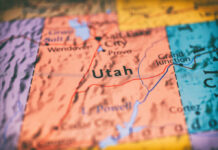
Greta Thunberg’s attempt to deliver aid to Gaza has triggered fierce political backlash and military warnings, testing the limits of climate activism in a war zone.
At a Glance
- Greta Thunberg joins Freedom Flotilla Coalition delivering aid to Gaza.
- Israel threatens to intercept vessel amid ongoing blockade.
- Mission recalls deadly 2010 flotilla raid by Israeli forces.
- Thunberg accused of aligning climate movement with anti-Israel sentiment.
- Flotilla’s voyage reignites debate over activism’s political boundaries.
From Climate Strikes to Conflict Zones
Swedish climate activist Greta Thunberg is sailing directly into one of the world’s most fraught geopolitical flashpoints, joining the Freedom Flotilla Coalition aboard a humanitarian aid ship bound for Gaza. Departing from Italy, the vessel—named Barcarole—carries a symbolic cargo of milk and protein bars aimed at challenging Israel’s blockade of the Gaza Strip, in place since 2007.
Israeli military officials, citing security concerns, have vowed to prevent the vessel’s arrival. “We are prepared for this case as well,” warned Brigadier General Effie Defrin, signaling the potential use of force. Tensions are further inflamed by recent accusations from a prior flotilla that claimed Israeli drones attacked them—a charge debunked when it was revealed the UAV belonged to the Hellenic Coast Guard.
Watch a report: Greta Thunberg joins Gaza aid flotilla.
Echoes of Past Confrontations
This is not the flotilla coalition’s first confrontation. A 2010 Israeli raid on a Gaza-bound aid ship left nine activists dead, triggering global condemnation and an ICC review. Though no legal actions followed, the episode established the high-risk stakes surrounding these missions.
Veteran activist “Mr. Coleman,” a past participant, described being surrounded by Israeli naval ships, hit with water cannons, and tasered before arrest. “We were strip searched, put on a bus and taken to an immigration facility,” he recounted, emphasizing the harsh reprisals flotilla members have faced.
The latest voyage stirs fears of similar escalation, especially given the broader context of the Israel-Gaza conflict that has, by Palestinian accounts, left over 15,000 dead since renewed fighting in 2023.
A Movement Divided
Thunberg’s vocal support for Gaza has drawn sharp criticism from political commentators and within her own movement. Australian media personality Danica De Giorgio quipped, “She’s sailing to Gaza like it’s some sort of idyllic holiday destination,” while Prue MacSween labeled her “an urban terrorist.”
In Israel, a now-retracted IDF statement branded Thunberg a “terror supporter,” and the education ministry removed her from school materials. Similar backlash erupted in Germany, where Fridays for Future distanced itself from her political views. Co-founder Sharona Shnayder, an Israeli-Jewish activist, voiced emotional dismay, saying Thunberg’s silence until publicly pressured was “deeply hurtful.”
Climate Justice or Political Crusade?
Thunberg has doubled down, stating: “We have always been political, because we have always been a movement for justice.” She has condemned Swedish arms ties with Israel and called for a global outcry over alleged war crimes in Gaza, asserting that “genocide is not self-defence.”
Her alignment with Gaza advocacy raises a core question: can climate activism remain neutral in global conflicts? As the Barcarole inches toward Israeli waters, the answer could shape the movement’s future and Thunberg’s legacy alike.




















